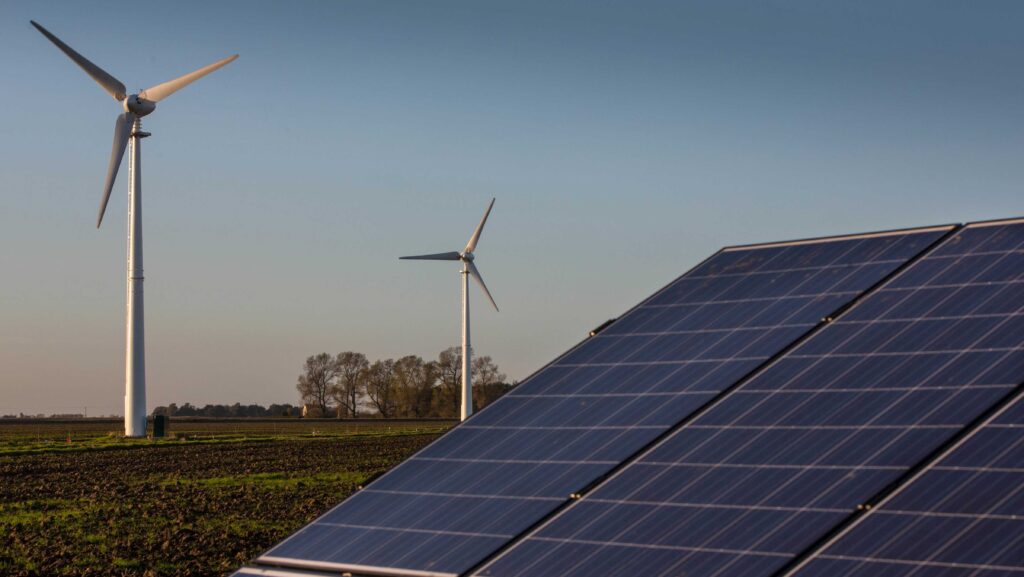More wind and solar farms needed say climate change advisers
 © Tim Scrivener
© Tim Scrivener A significant increase in the number of onshore wind and solar farms, together with a step-increase in tree planting and peatland restoration, are needed if the UK is to meet its 2030 emission reduction targets.
According to the Climate Change Committee’s (CCC) latest annual progress report to parliament, “rollbacks” by the previous Conservative government have left the UK seriously “off track” in terms of meeting its net-zero ambitions.
See also: How climate change may increase pest and disease threats
“The new government has an opportunity to course-correct, but it will need to be done as a matter of urgency to make up for lost time,” said a committee spokesman.
The CCC is the principal adviser to the government on climate change policy.
Renewable energy
Its latest report applauds the energy sector for replacing coal power with renewable energy, which has been a major factor behind the reduction in greenhouse gas emissions to less than half what they were in the 1990s.
But other sectors, including agriculture, need to step up, says the committee, which has issued 10 recommendations to government.
It says onshore wind installations will need to double by 2030, while solar installations must increase fivefold.
“Tree planting must also be scaled up in the 2020s for abatement to be sufficient,” it said. “There must be no more delays to addressing the barriers to delivery.”
Current targets for new woodland creation stand at 30,000ha a year, and the CCC says the UK is currently “significantly” off track, at about 14,000ha a year.
Response
Industry reaction to the CCC report has been mixed, though there is general acknowledgement that, with the right support, farming can be part of the solution to climate change.
NFU president Tom Bradshaw said the changes needed to farming practices and land management require stability and confidence – “two things sadly lacking in farming after years of squeezed margins”.
“We want to work with the government to deliver what’s needed at a farm level,” he said.
This included investment to help reduce farming’s climate impact, a “prioritisation” of climate measures within Environmental Land Management scheme, and greenhouse gas “baselining” on farms to provide a true picture of on-farm emissions and sequestration.
Martin Lines, chief executive of the Nature Friendly Farming Network, agreed agriculture must play its part.
“Given the right level of government support, farming can help drive down emissions, as well as adapt to increasingly volatile growing conditions,” he said.
Tom Lancaster, head of farming at the Energy & Climate Intelligence Unit, said he was not surprised that agriculture was so “off track” in terms of climate change mitigation.
“This report should be a wake-up call for policymakers to get serious about tackling emissions from agriculture, and taking steps to build greater resilience to future climate impacts to safeguard our food security,” he said.
